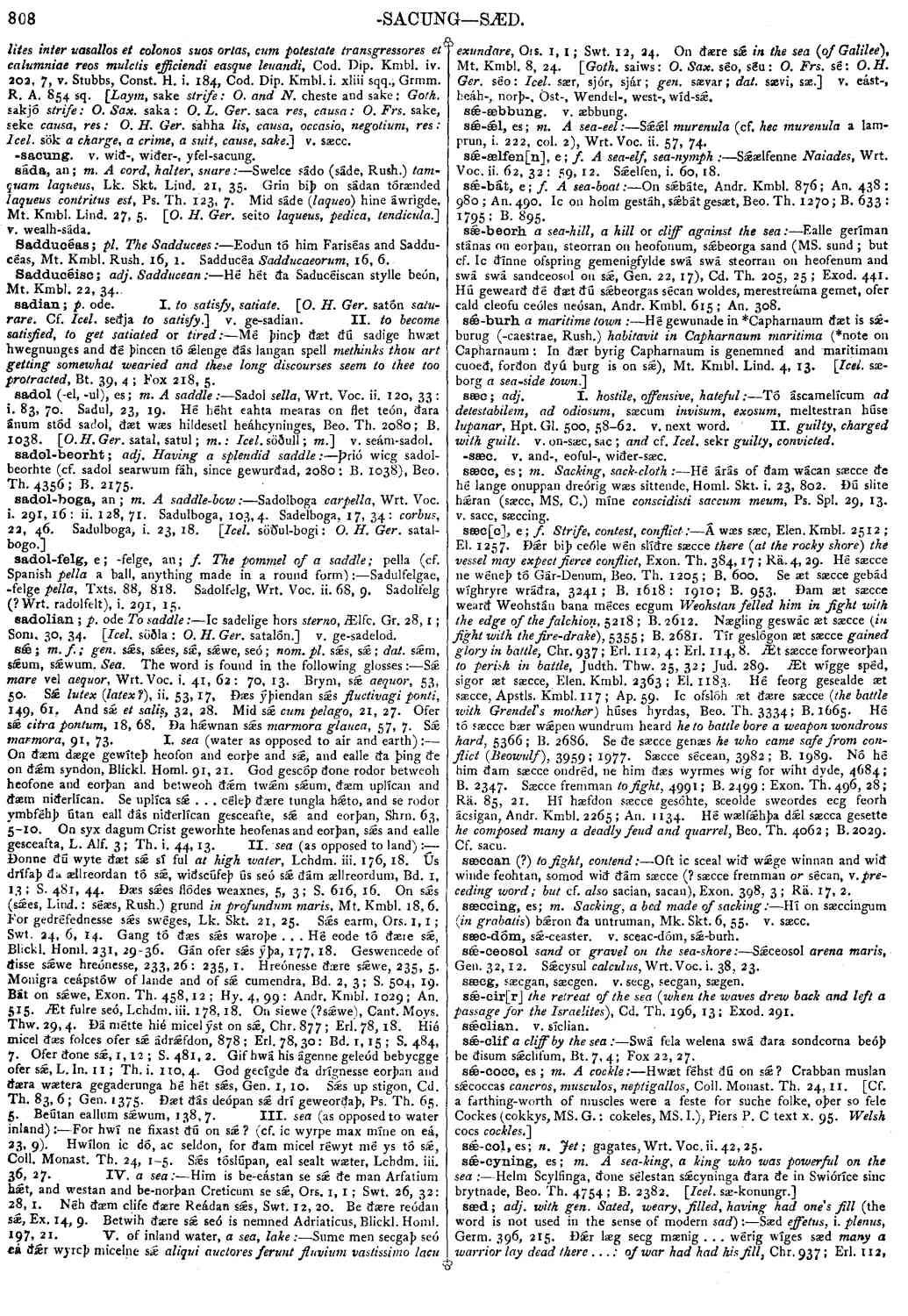sæc
- noun [ feminine ]
-
Á wæs sæc,
- Elen. Kmbl. 2512; El. 1257.
-
Ðǽr biþ ceóle wén slíðre sæcce
there (at the rocky shore) the vessel may expect fierce conflict,
- Exon. Th. 384, 17; Rä. 4, 29.
-
Hé sæcce ne wéneþ tó Gár-Denum,
- Beo. Th. 1205; B. 600.
-
Se æt sæcce gebád wíghryre wráðra,
- 3241; B. 1618 : 1910; B. 953.
-
Ðam æt sæcce wearð Weohstán bana méces ecgum
Weohstan felled him in fight with the edge of the falchion,
- 5218; B. 2612.
-
Nægling geswác æt sæcce (
in fight with the fire-drake
),- 5355; B. 2681.
-
Tír geslógon æt sæcce
gained glory in battle,
- Chr. 937; Erl. 112, 4 : Erl. 114, 8.
-
Æt sæcce forweorþan
to perish in battle,
- Judth. Thw. 25, 32; Jud. 289.
-
Æt wígge spéd, sigor æt sæcce,
- Elen. Kmbl. 2363; El. 1183.
-
Hé feorg gesealde æt sæcce,
- Apstls. Kmbl. 117; Ap. 59.
-
Ic ofslóh æt ðære sæcce (
the battle with Grendel's mother
) húses hyrdas,- Beo. Th. 3334; B. 1665.
-
Hé tó sæcce bær wǽpen wundrum heard
he to battle bore a weapon wondrous hard,
- 5366; B. 2686.
-
Se ðe sæcce genæs
he who came safe from conflict (Beowulf),
- 3959; 1977.
-
Sæcce sécean,
- 3982; B. 1989.
-
Nó hé him ðam sæcce ondréd, ne him ðæs wyrmes wíg for wiht dyde,
- 4684; B. 2347.
-
Sæcce fremman
to fight,
- 4991; B. 2499 : Exon. Th. 496, 28; Rä. 85, 21.
-
Hí hæfdon sæcce gesóhte, sceolde sweordes ecg feorh ácsigan,
- Andr. Kmbl. 2265; An. 1134.
-
Hé wælfǽhþa dǽl sæcca gesette
he composed many a deadly feud and quarrel,
- Beo. Th. 4062; B. 2029.
- Cf. sacu.
Bosworth, Joseph. “sæc.” In An Anglo-Saxon Dictionary Online, edited by Thomas Northcote Toller, Christ Sean, and Ondřej Tichy. Prague: Faculty of Arts, Charles University, 2014. https://bosworthtoller.com/26150.
Checked: 0